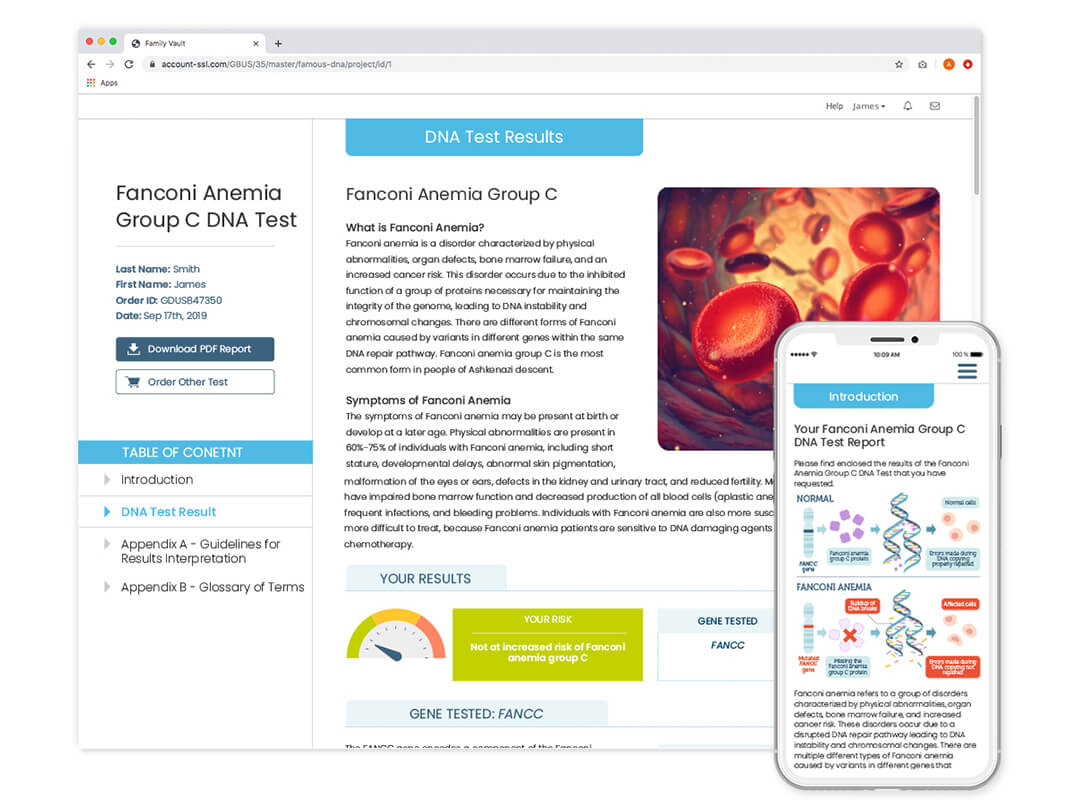Fanconi Anemia Group C DNA Test
Are you a genetic carrier for Fanconi anemia group C? Find out with this DNA Test.
- Detects three FANCC variants which cause Fanconi anemia group C
- Characterized by physical abnormalities, bone marrow failure and increased cancer risk
- Carrier screening test intended for couples who are planning to become pregnant
- 100% private and confidential online results
Already have DNA markers? Sign in and upload your data to view results.
Need to take the DNA Test? Order our easy-to-use swab kit.





